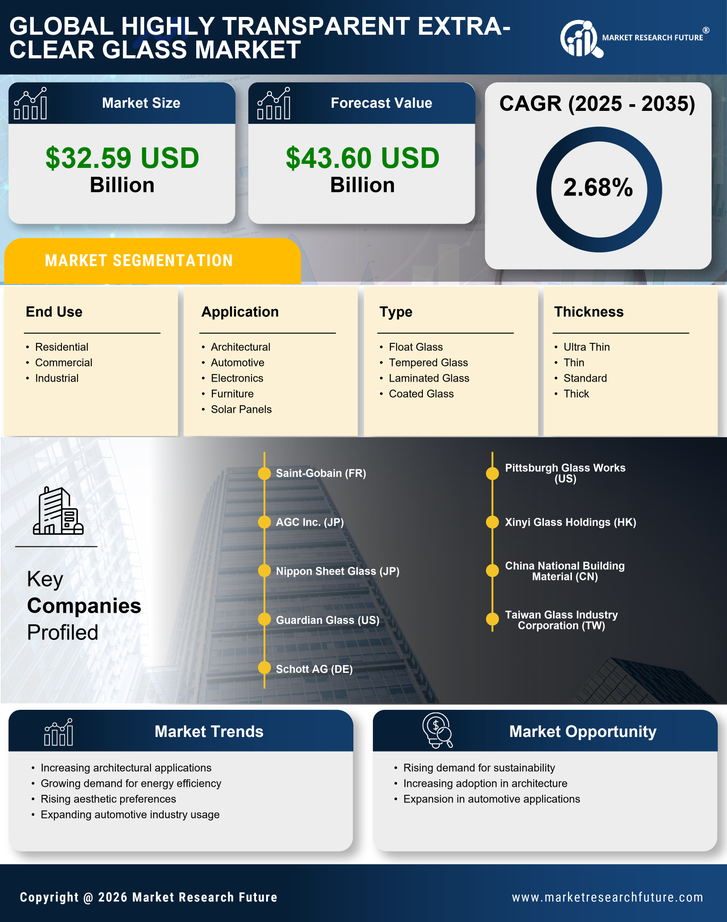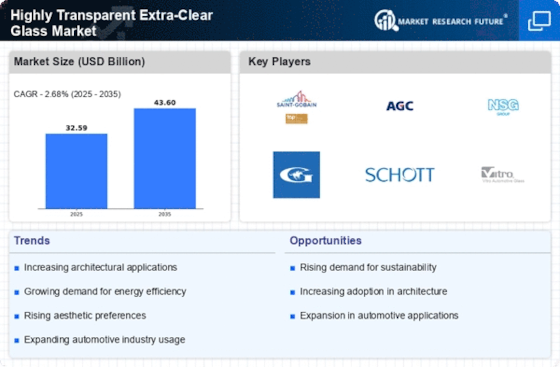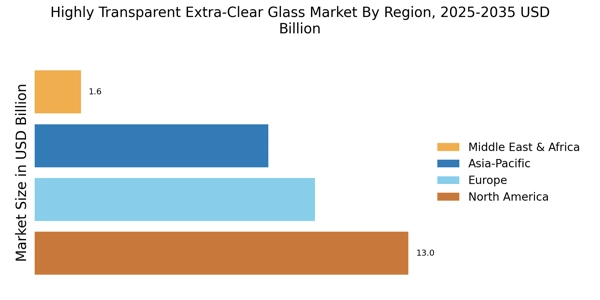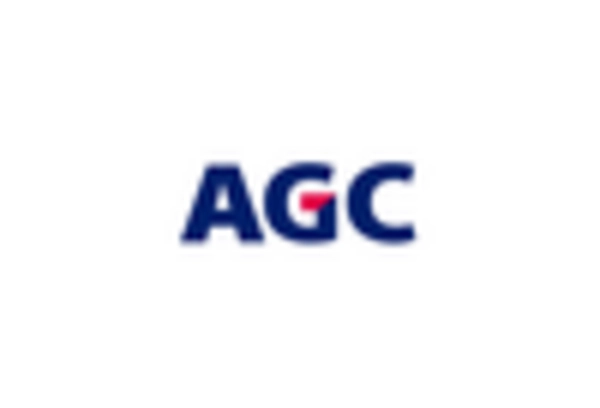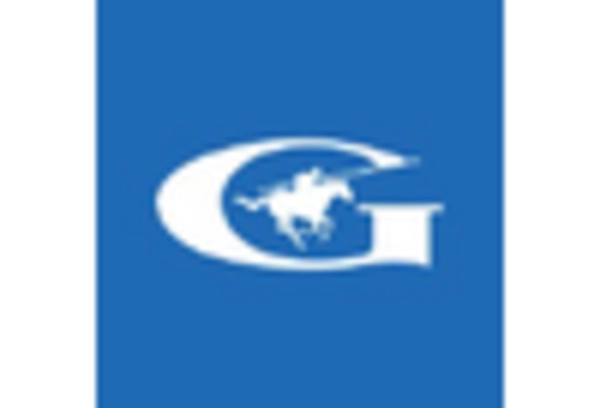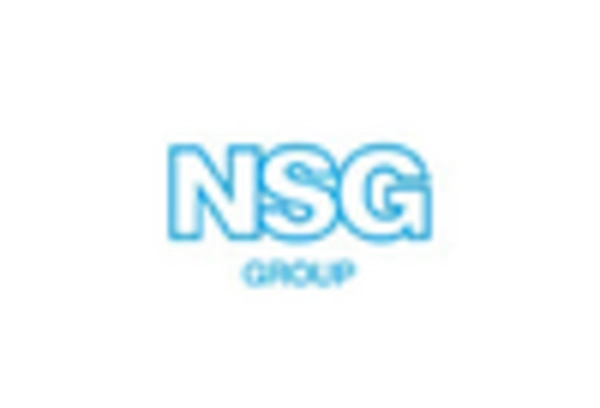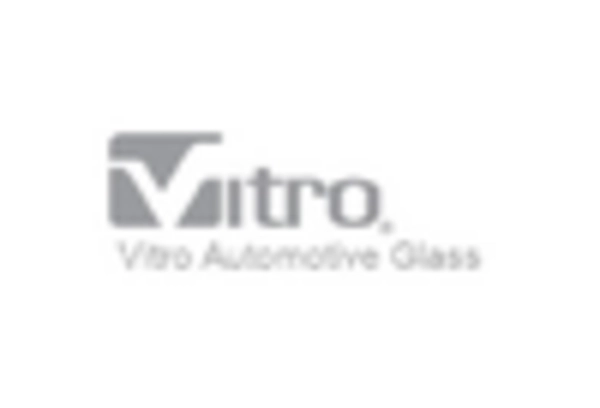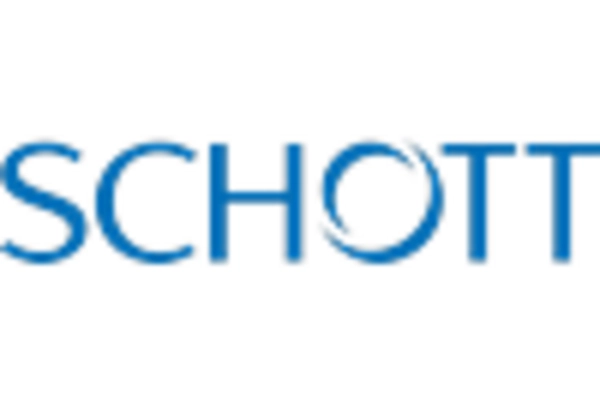Rising Demand for Aesthetic Appeal
The Highly Transparent Extra-Clear Glass Market experiences a notable surge in demand driven by the increasing consumer preference for aesthetic appeal in residential and commercial spaces. Architects and designers are increasingly opting for extra-clear glass due to its ability to enhance natural light and provide unobstructed views. This trend is particularly evident in high-end residential projects and luxury commercial buildings, where visual clarity is paramount. The market data indicates that the architectural segment accounts for a substantial portion of the overall demand, with projections suggesting a growth rate of approximately 6% annually. As consumers become more discerning about design elements, the demand for highly transparent glass is likely to continue its upward trajectory, further solidifying its position in the market.
Expansion of Construction Activities
The Highly Transparent Extra-Clear Glass Market is poised for growth due to the expansion of construction activities across various sectors. Urbanization and population growth are driving the demand for new residential and commercial buildings, which in turn increases the need for high-quality glass products. Market data indicates that the construction sector is expected to grow at a rate of 4% annually, with a significant portion of this growth attributed to the use of extra-clear glass in facades and interior applications. As builders and developers seek to create visually appealing and functional spaces, the demand for highly transparent glass is likely to rise, positioning it as a key material in modern construction projects.
Increased Focus on Energy Efficiency
The Highly Transparent Extra-Clear Glass Market is witnessing a shift towards energy-efficient solutions, driven by growing environmental concerns and regulatory pressures. Consumers and businesses alike are increasingly prioritizing energy-saving products, leading to a rise in demand for glass that not only offers aesthetic benefits but also contributes to energy efficiency. This trend is particularly relevant in commercial buildings, where energy-efficient glass can significantly reduce heating and cooling costs. Market data suggests that the energy-efficient glass segment is expected to grow by approximately 7% annually, as more stakeholders recognize the long-term cost savings associated with these products. Consequently, manufacturers are focusing on developing extra-clear glass that meets stringent energy performance standards, thereby enhancing its appeal in the market.
Growing Applications in Automotive Sector
The automotive industry significantly influences the Highly Transparent Extra-Clear Glass Market, as manufacturers increasingly incorporate extra-clear glass in vehicle designs. The demand for lightweight and aesthetically pleasing materials is driving automakers to adopt this type of glass for windshields, windows, and sunroofs. Market data indicates that the automotive segment is projected to grow at a compound annual growth rate of around 5% over the next few years. This growth is attributed to the rising consumer preference for vehicles that offer enhanced visibility and safety features. As the automotive sector continues to evolve, the integration of highly transparent glass is likely to become a standard, further propelling the market forward.
Technological Innovations in Glass Production
Technological advancements play a pivotal role in shaping the Highly Transparent Extra-Clear Glass Market. Innovations in glass manufacturing processes, such as improved melting techniques and enhanced quality control measures, have led to the production of glass with superior clarity and minimal impurities. These advancements not only enhance the aesthetic qualities of the glass but also improve its durability and energy efficiency. Market data suggests that manufacturers investing in cutting-edge technologies are witnessing a competitive edge, as they can offer products that meet the evolving demands of consumers. Furthermore, the integration of smart technologies into glass production is anticipated to create new opportunities for growth, as the market increasingly shifts towards energy-efficient and sustainable solutions.
